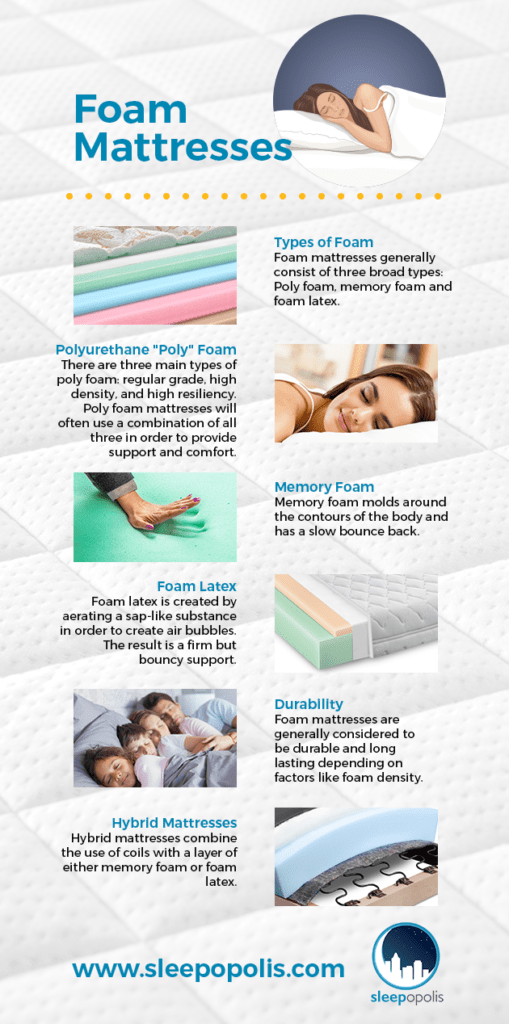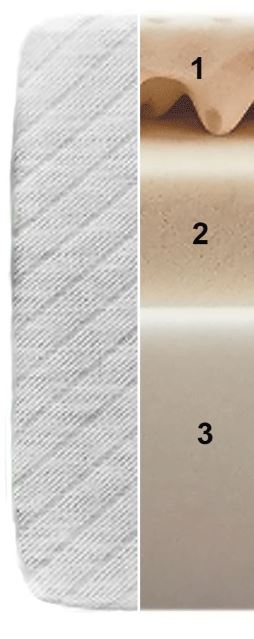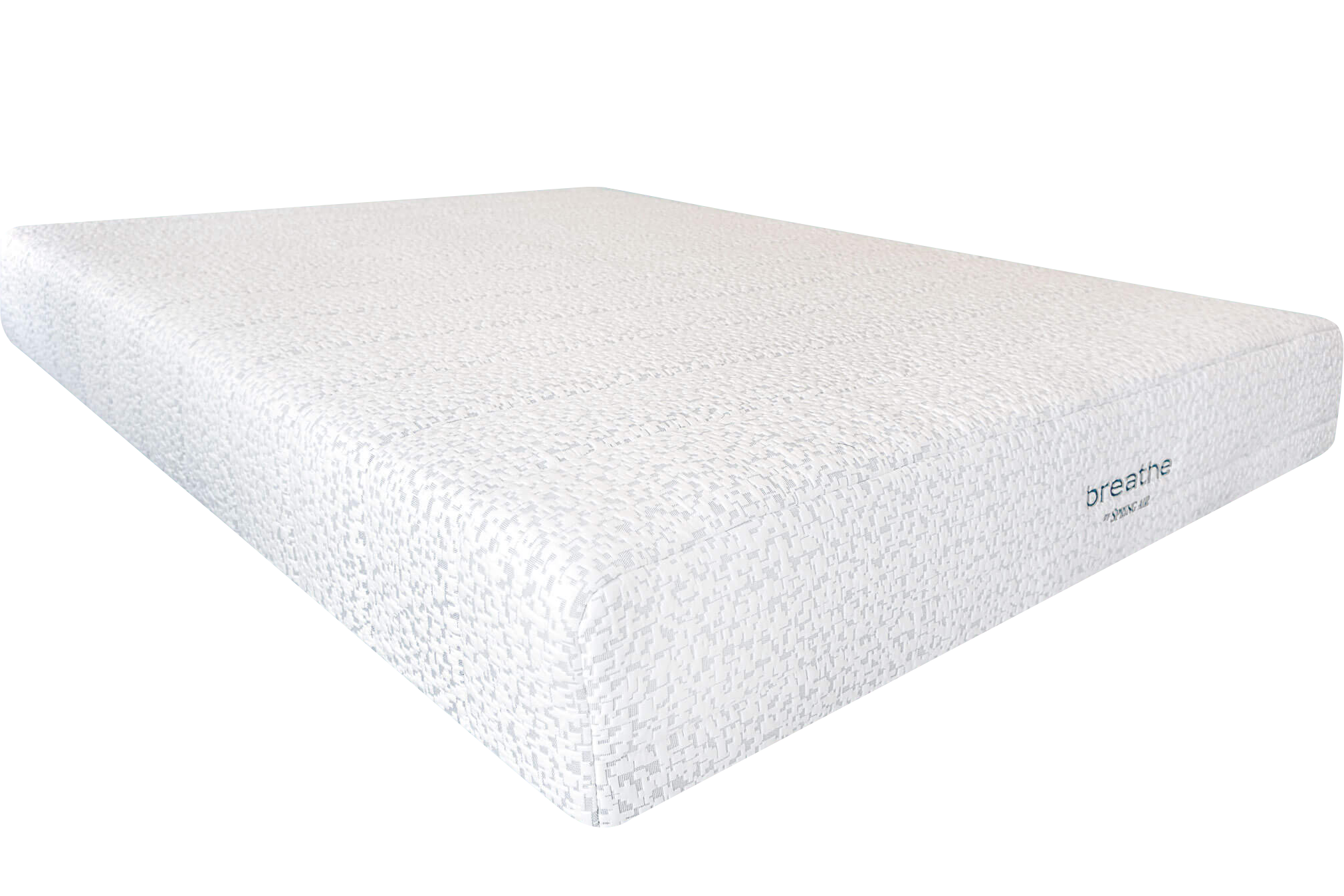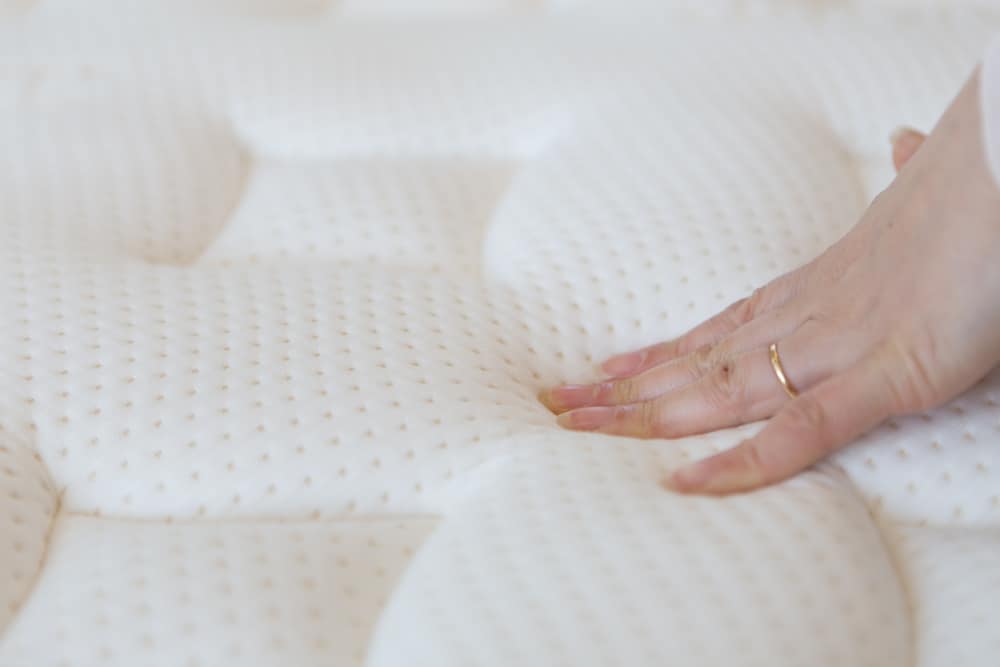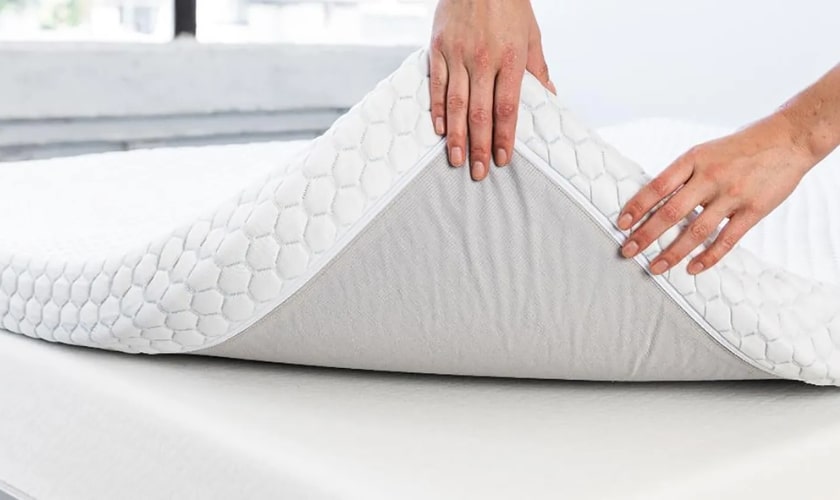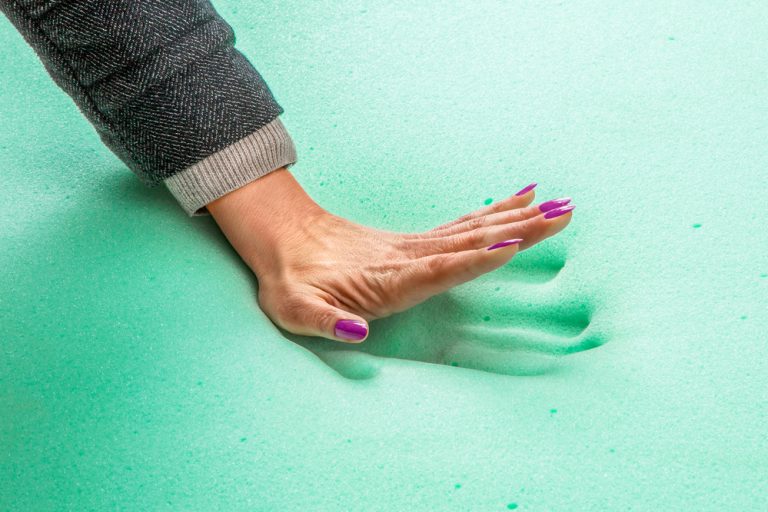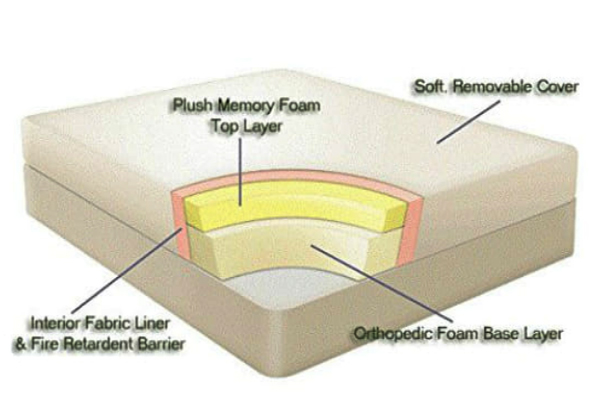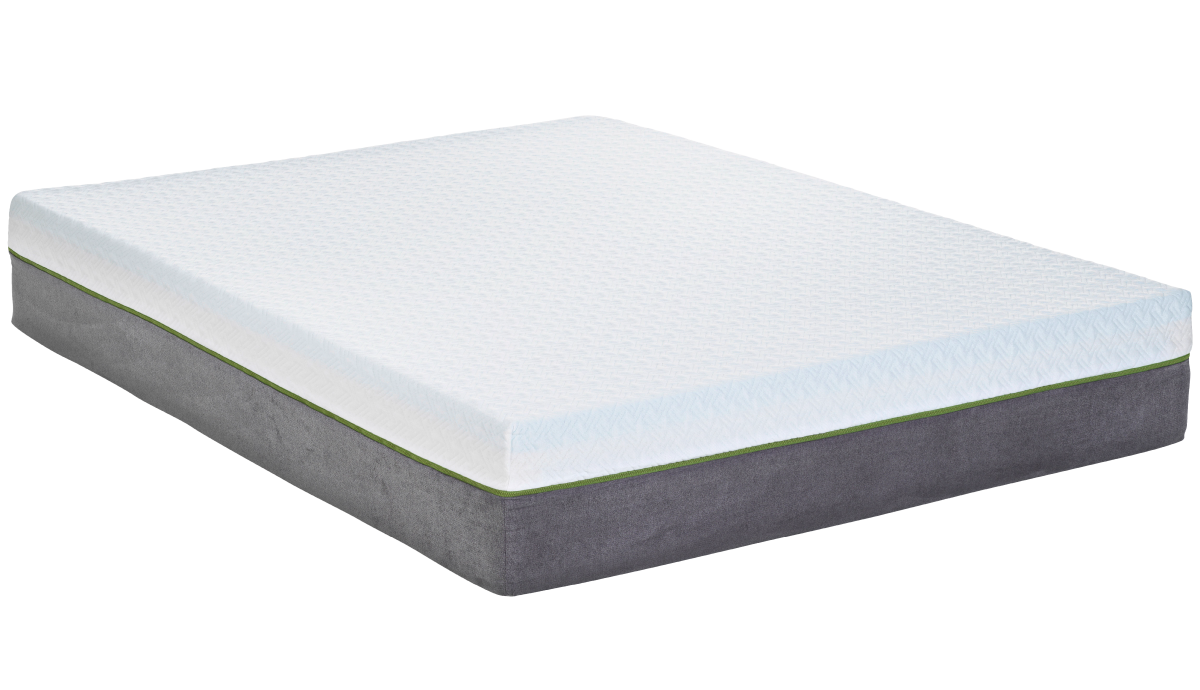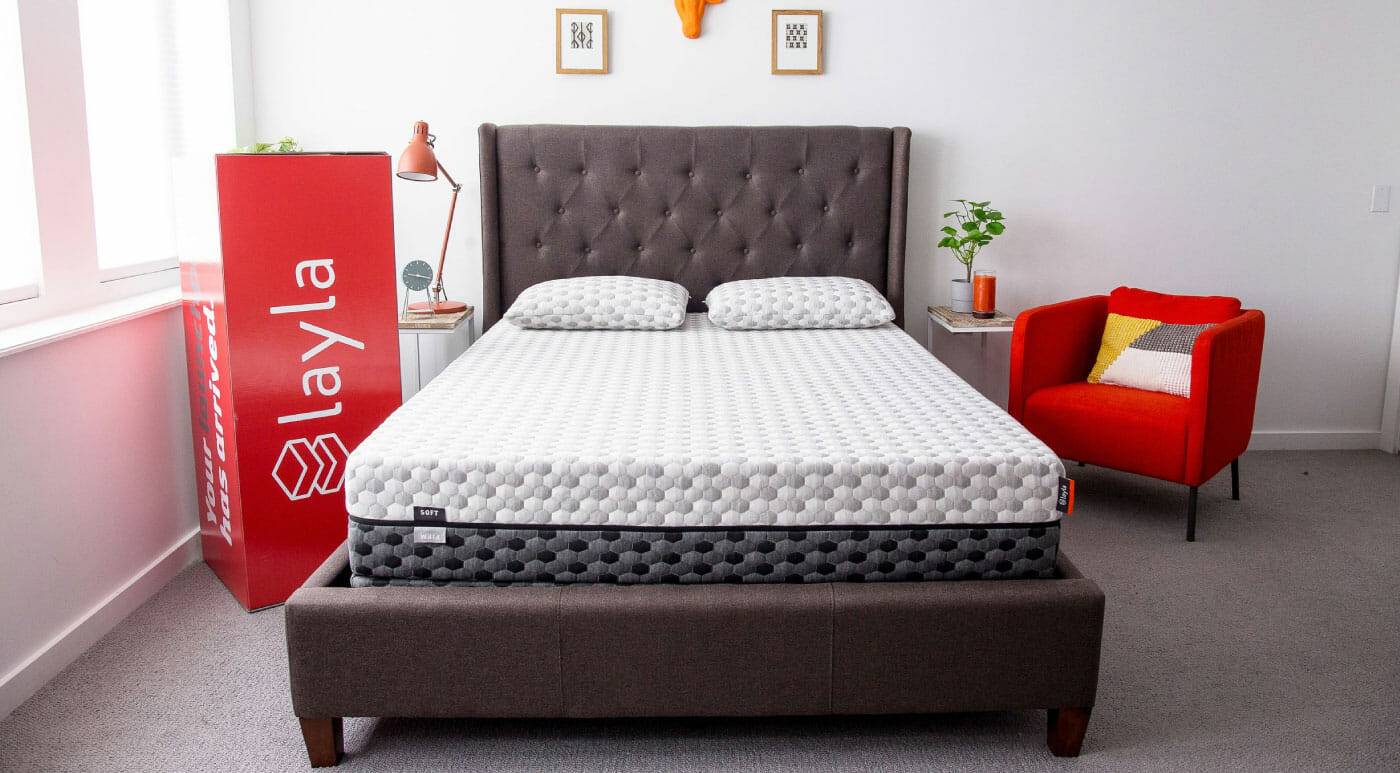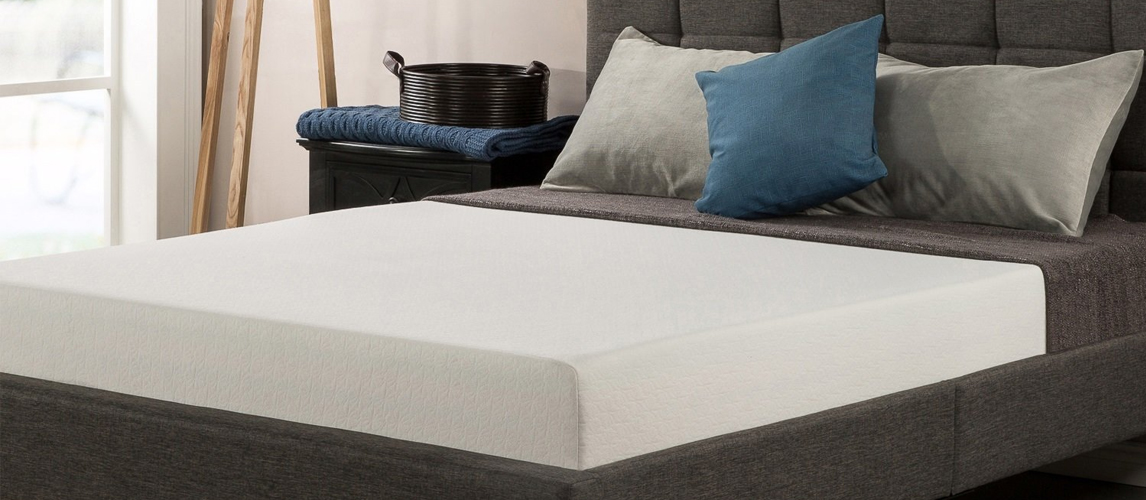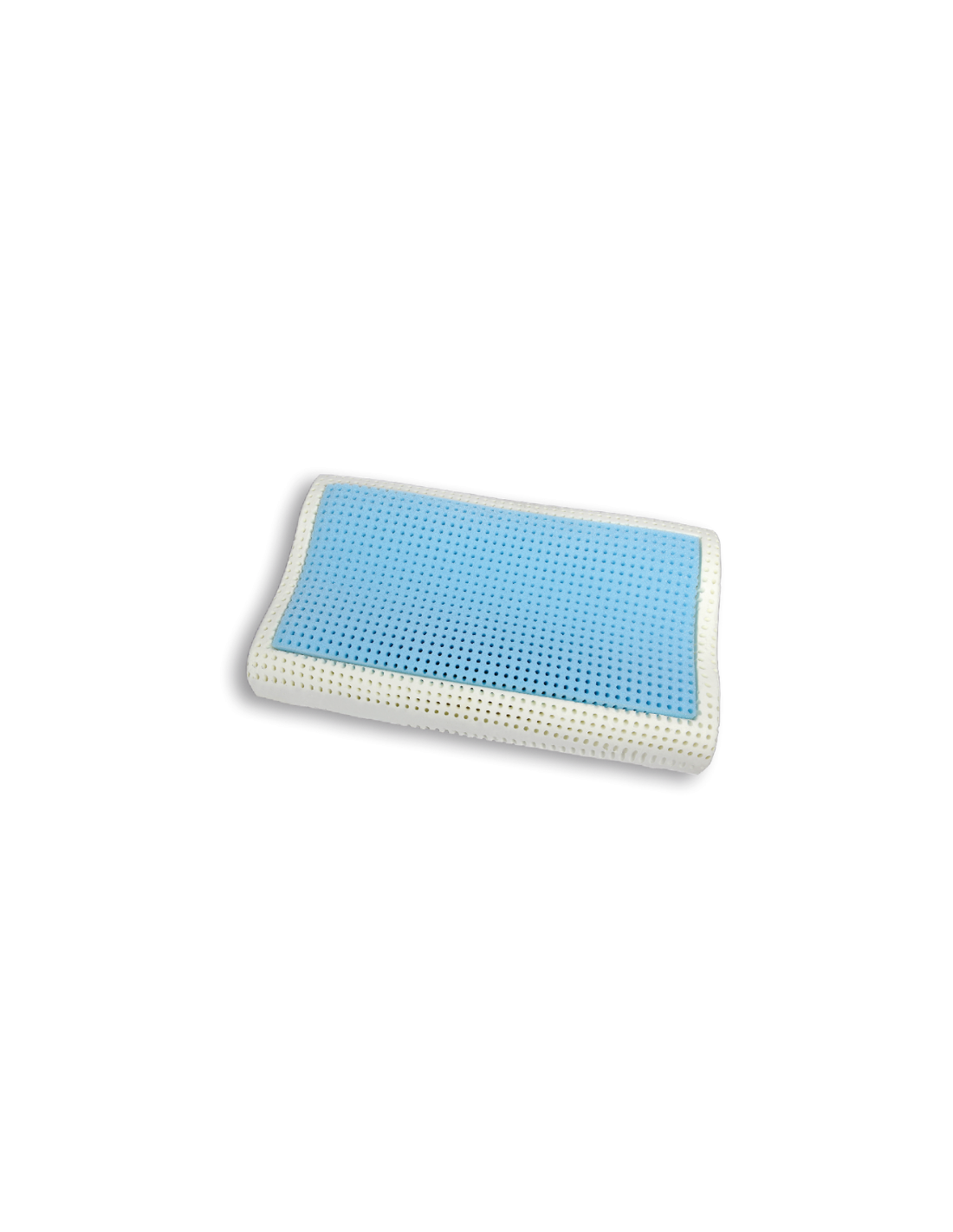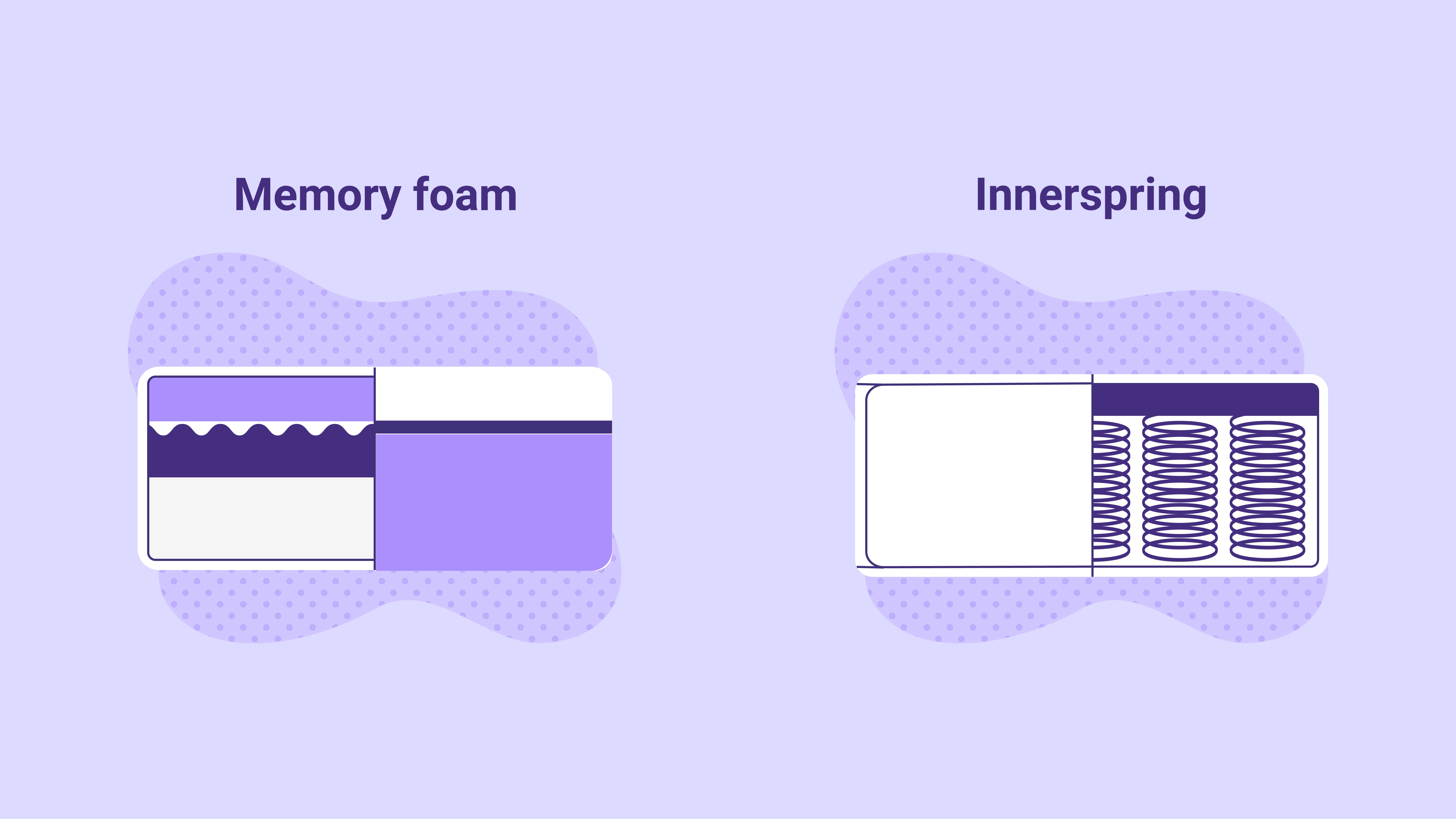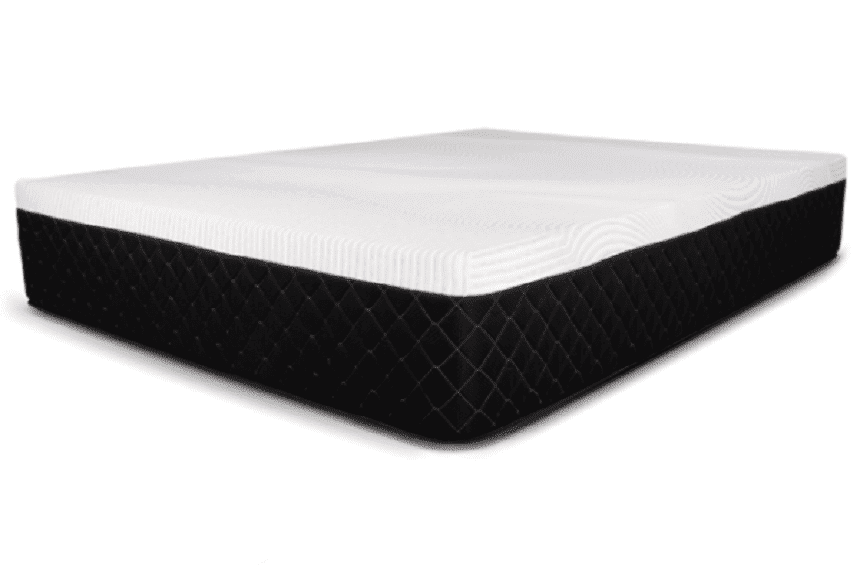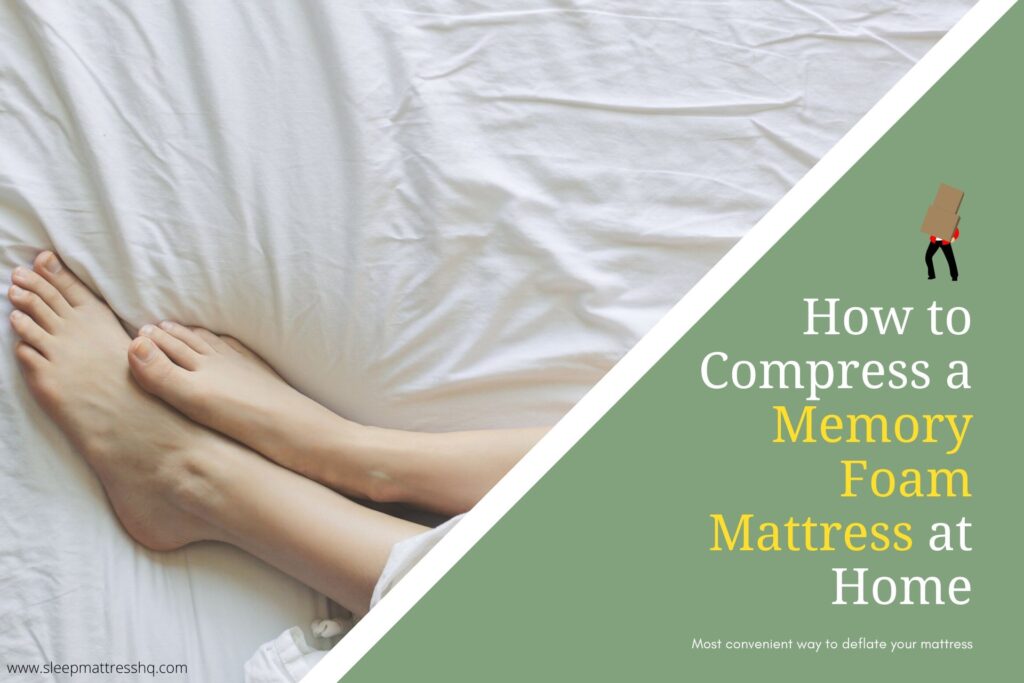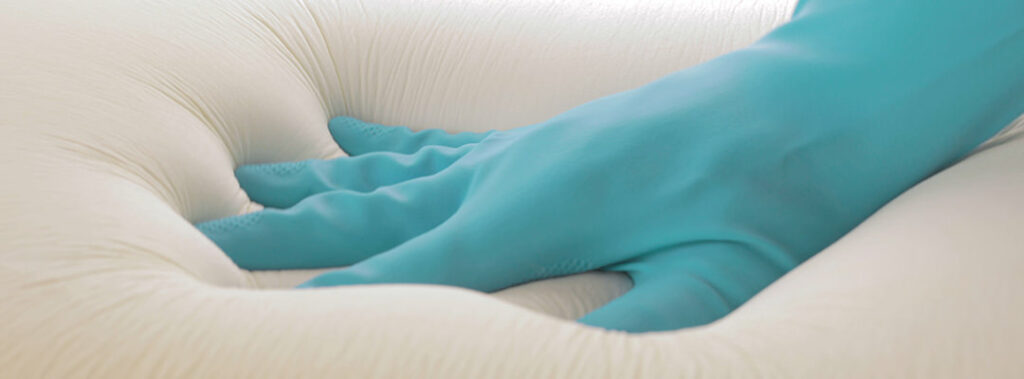Memory foam mattresses have become increasingly popular in recent years, thanks to their ability to contour to the body and provide pressure relief for a more comfortable sleep. However, for some people, sleeping on a memory foam mattress can cause sensitivity issues that can affect their overall sleep quality. In this article, we'll explore the causes of memory foam mattress sensitivity and provide tips for managing and alleviating its symptoms.Memory Foam Mattress Sensitivity: What You Need to Know
Memory foam is a type of material that is known for its ability to conform to the body's shape and provide support where it's needed. Its unique properties make it a popular choice for mattresses, pillows, and other bedding products. However, some individuals may experience sensitivity when sleeping on a memory foam mattress, which can manifest in a variety of ways. Sensitivity to memory foam mattresses can range from mild discomfort to severe allergic reactions. Some common symptoms include skin irritation, difficulty breathing, headaches, and even flu-like symptoms. For individuals with pre-existing respiratory conditions, sleeping on a memory foam mattress can also trigger asthma attacks. Therefore, it's essential to understand the causes of memory foam mattress sensitivity and how to manage it effectively.Understanding Memory Foam Mattress Sensitivity
If you have a sensitivity to memory foam, it's crucial to choose a mattress that will minimize your symptoms. Look for mattresses made of hypoallergenic materials and that are certified by CertiPUR-US, which ensures that the foam is free from harmful chemicals. You may also want to consider a memory foam mattress with a lower density, as higher density foam tends to have more off-gassing and can potentially cause more sensitivity issues. Additionally, consider opting for a mattress with a cooling gel layer, as this can help reduce heat retention and prevent skin irritation.How to Choose a Memory Foam Mattress for Sensitive Sleepers
While memory foam mattresses don't contain allergens themselves, they can trap dust, dust mites, and other allergens, which can trigger sensitivity reactions. To minimize this, regularly clean and vacuum your mattress, and consider using a hypoallergenic mattress cover. You may also want to invest in an air purifier for your bedroom to help filter out any allergens.Dealing with Allergies and Sensitivities to Memory Foam Mattresses
One of the main causes of memory foam mattress sensitivity is off-gassing. Memory foam is made of polyurethane, which can release volatile organic compounds (VOCs) into the air, causing a strong chemical smell. While this smell usually dissipates within a few days, it can be a significant concern for individuals with respiratory sensitivities. To minimize off-gassing, look for memory foam mattresses that are GreenGuard Gold certified, which means they have low emissions of VOCs. In some cases, individuals may also be sensitive to the materials used in the mattress cover or other bedding products, such as pillows or sheets. If you suspect this may be the cause of your sensitivity, consider switching to hypoallergenic materials or using a barrier cover for your mattress.Memory Foam Mattress Sensitivity: Causes and Solutions
With the rise in popularity of memory foam mattresses, many brands now offer options specifically designed for sensitive sleepers. Some of the best memory foam mattresses for sensitive sleepers include the GhostBed Luxe, which has a cooling gel layer and is CertiPUR-US certified, and the Loom & Leaf, which uses plant-based foam and is GreenGuard Gold certified.Best Memory Foam Mattresses for Sensitive Sleepers
If you're unsure whether you have a sensitivity to memory foam mattresses, you can perform a simple test at home. Place a small piece of memory foam on your forearm and cover it with a bandage. Leave it for a few hours, and then remove the bandage and check for any redness, irritation, or other symptoms. If you notice any of these, it's likely that you have a sensitivity to memory foam.How to Test for Memory Foam Mattress Sensitivity
It's essential to understand the difference between memory foam mattress sensitivity and allergies. While sensitivity can cause discomfort and other symptoms, allergies can be more severe and potentially life-threatening. If you experience severe reactions such as difficulty breathing or anaphylaxis, it's crucial to seek medical attention immediately. Additionally, if you have a known allergy to polyurethane, it's best to avoid memory foam mattresses altogether.Memory Foam Mattress Sensitivity vs. Allergies: What's the Difference?
Aside from choosing a suitable memory foam mattress and bedding products, there are other steps you can take to manage your sensitivity and improve your sleep quality. These include keeping your bedroom well-ventilated, using a dehumidifier to reduce humidity, and regularly washing your bedding in hot water to kill allergens.Tips for Managing Memory Foam Mattress Sensitivity
In most cases, sensitivity to memory foam mattresses can be managed with the tips mentioned above. However, if you continue to experience discomfort and other symptoms, it's best to consult with your doctor. They can help determine the root cause of your sensitivity and provide additional treatment options, such as medication or allergy shots, to alleviate your symptoms. In conclusion, while memory foam mattresses offer many benefits, they may not be suitable for everyone. If you experience sensitivity to memory foam, it's crucial to understand the causes and take steps to manage and alleviate your symptoms. By choosing the right mattress and implementing some simple tips, you can still enjoy the comfort and support of memory foam while getting a restful night's sleep.Memory Foam Mattress Sensitivity: Common Symptoms and Treatment Options
The Benefits of Memory Foam Mattresses for Individuals with Sensitivity

What is Memory Foam?
 Memory foam is a type of polyurethane foam that is specially designed to respond to body heat and pressure, molding to the shape of an individual's body. This unique material was first developed by NASA in the 1960s to improve the safety and comfort of their aircraft cushions. Today, memory foam is widely used in various products, including mattresses, due to its ability to provide superior comfort and support.
Memory foam is a type of polyurethane foam that is specially designed to respond to body heat and pressure, molding to the shape of an individual's body. This unique material was first developed by NASA in the 1960s to improve the safety and comfort of their aircraft cushions. Today, memory foam is widely used in various products, including mattresses, due to its ability to provide superior comfort and support.
The Rise of Memory Foam Mattresses
 In recent years, memory foam mattresses have become increasingly popular due to their unique properties and benefits. One of the main reasons for their rise in popularity is their ability to relieve pressure points. Traditional mattresses can create pressure points, causing discomfort and pain for sensitive individuals. Memory foam mattresses, on the other hand, distribute body weight evenly, reducing pressure points and promoting better sleep.
In recent years, memory foam mattresses have become increasingly popular due to their unique properties and benefits. One of the main reasons for their rise in popularity is their ability to relieve pressure points. Traditional mattresses can create pressure points, causing discomfort and pain for sensitive individuals. Memory foam mattresses, on the other hand, distribute body weight evenly, reducing pressure points and promoting better sleep.
The Benefits for Individuals with Sensitivity
 Memory foam mattresses are particularly beneficial for individuals with sensitivity. This can include those with chronic pain conditions, allergies, or skin sensitivities. The unique properties of memory foam, such as its ability to conform to the body and distribute weight evenly, can provide much-needed relief for those with sensitivity.
Moreover, memory foam mattresses are also hypoallergenic and resistant to dust mites, mold, and bacteria. This can be especially beneficial for individuals with allergies or asthma, as it can help improve air quality and reduce discomfort while sleeping.
Memory foam mattresses are particularly beneficial for individuals with sensitivity. This can include those with chronic pain conditions, allergies, or skin sensitivities. The unique properties of memory foam, such as its ability to conform to the body and distribute weight evenly, can provide much-needed relief for those with sensitivity.
Moreover, memory foam mattresses are also hypoallergenic and resistant to dust mites, mold, and bacteria. This can be especially beneficial for individuals with allergies or asthma, as it can help improve air quality and reduce discomfort while sleeping.
Additional Considerations for Memory Foam Mattresses
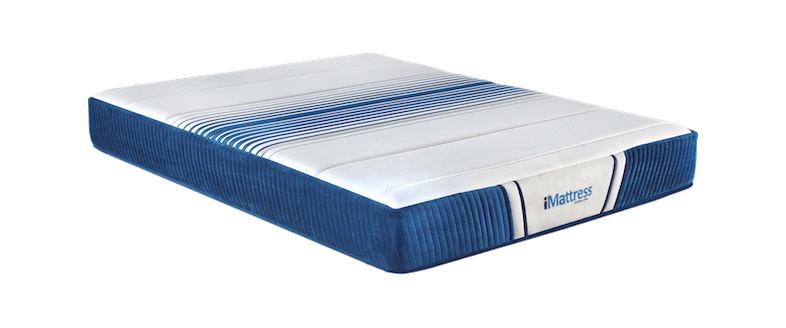 When considering a memory foam mattress, it is essential to choose one with the right level of firmness. For individuals with sensitivity, a medium-firm or firm memory foam mattress may be the best option, as it provides the necessary support without being too hard. It is also crucial to choose a mattress with a cooling feature, as memory foam can retain heat and cause discomfort in some individuals.
In conclusion, memory foam mattresses have become a popular choice for individuals with sensitivity due to their unique properties and benefits. By providing pressure relief, hypoallergenic properties, and customizable firmness, memory foam mattresses can provide much-needed comfort and support for those with sensitivity. If you struggle with sensitivity, a memory foam mattress may be just what you need for a good night's sleep.
When considering a memory foam mattress, it is essential to choose one with the right level of firmness. For individuals with sensitivity, a medium-firm or firm memory foam mattress may be the best option, as it provides the necessary support without being too hard. It is also crucial to choose a mattress with a cooling feature, as memory foam can retain heat and cause discomfort in some individuals.
In conclusion, memory foam mattresses have become a popular choice for individuals with sensitivity due to their unique properties and benefits. By providing pressure relief, hypoallergenic properties, and customizable firmness, memory foam mattresses can provide much-needed comfort and support for those with sensitivity. If you struggle with sensitivity, a memory foam mattress may be just what you need for a good night's sleep.

